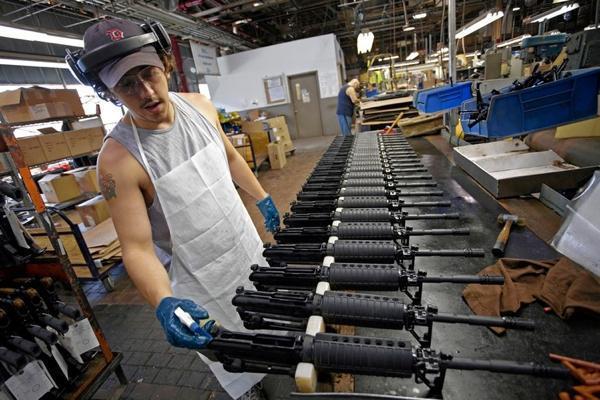According to the National Shooting Sports Foundation, the U.S. gun industry generated $51 billion in revenue and $7.4 billion in state and federal taxes in 2016. The study, commissioned to map out which states are the most dependent on the gun industry, comes at a time when gun sales are in decline after the election of President Donald Trump quashed fears of a new round of gun control laws. In the past, gun sales have been highly linked to proposed gun control legislation and concern about possible new gun bans.
On the other end of the scale, New Hampshire, New Jersey, New York, Rhode Island and Delaware all have the lowest levels of gun ownership. Just 5.2% of all Delaware residents own guns.
Broadly speaking, the West and the South benefit the most from the gun industry, particularly countries with relaxed gun laws. The top five states in the industry that have the most impact all lie west of the Mississippi: Alaska, Wyoming, South Dakota, Montana, and Idaho. Idaho has the most firearms-industry jobs per 10,000 residents, 39.85, 20.6 times more than in New Jersey, which has the fewest at 1.93.
By contrast, the bottom five states on the ranking, California, New Jersey, New York, Delaware, and Rhode Island are all highly urbanized states. California, New York, and New Jersey all have some of the most restrictive gun control laws in the nation.
The link between gun control and gains from the gun industry is also evident in the number of jobs and taxes paid by the industry in each state. New York and New Jersey have some of the fewest firearms-related jobs per capita in the nation and received the smallest share of firearm-related tax revenue.
One data point that stands out in the report: the District of Columbia, which has banned handguns and has no hunting industry or firearms manufacturing to speak of, has the highest average firearms-industry wages and benefits at $348,325. This is undoubtedly a reflection of the wages of pro-gun industry lobbyists, who are apparently getting paid pretty well.
The findings also correlate a state’s benefit from the gun industry to states with a high number of rural residents, loose gun control regulations and hunting as a major part of the local culture and economy. On the flip side, urbanization, gun control, and a relative lack of a hunting industry correlates with states that minimally benefit from the gun industry.
(Contributing Source: taskandpurpose.com)


